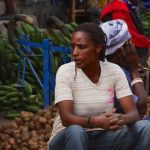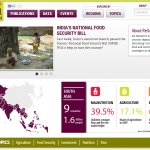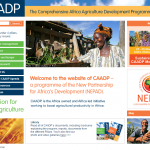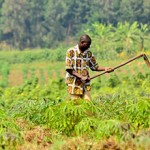In 2004, BMZ was one of the first organizations to partner with IFPRI in supporting the NEPAD Secretariat and the implementation of CAADP. BMZ’s partnership allowed IFPRI, between 2004 and 2007, to prepare a roadmap to guide the CAADP implementation process, establish the program’s credibility among development partners, and facilitate the adoption of the CAADP agenda by more than 20 African countries and by regional economic communities. From 2008 to 2011, IFPRI assisted the NEPAD Secretariat and regional economic communities in implementing and advocating for the CAADP agenda at the regional, sub-regional, and national levels. IFPRI also helped build the capacity of national teams and experts to lead the analytical work.
ReSAKSS: 10 Years of Promoting Evidence-Based Policy Planning and Implementation under CAADP
Ten years after its establishment, the IFPRI-facilitated ReSAKSS in Africa serves as a vital support to the implementation of CAADP. On October 18-20, 2016, the 2016 ReSAKSS Annual Conference will be held in Accra, Ghana to review and discuss the CAADP implementation.
Providing Food Policy Information for African Policymakers: The Regional Strategic Analysis and Knowledge Support System (RESAKSS)
MOTIVATION The efforts under CAADP to promote evidence-based policy planning and implementation require a mechanism that incorporates peer review, benchmarking, and learning, as well as mutual accountability. IFPRI, along with the International Livestock Research Institute (ILRI), the International Institute of Tropical Agriculture (IITA), and the International Water Management Institute (IWMI), and in partnership with the >> Read more
The Comprehensive Africa Agriculture Development Programme: Long-Term Strategic Analysis for Improved Growth and Poverty Reduction
MOTIVATION After years of declining investment in rural development and low agricultural productivity, the African Union Commission launched the Comprehensive Africa Agriculture Development Programme (CAADP) in 2003. Participating African governments committed to allocate 10 percent of their national budgets to agriculture in order to help achieve a 6 percent annual agricultural growth rate. With USAID >> Read more
Regional Strategic Alternatives for Agriculture-Led Growth and Poverty Reduction in West Africa
In 2006, IFPRI began collaborating with the West and Central African Council for Agricultural Research and Development (CORAF/WECARD) and ECOWAS to identify the most effective ways to promote growth in agricultural productivity at the subsector level across West and Central African countries.
Agricultural Development for Economic Recovery in the DRC
In spite of its promising agricultural potential, the Democratic Republic of Congo (DRC) has the highest rate of malnutrition in the world.




